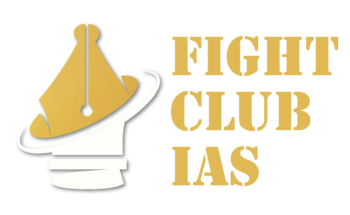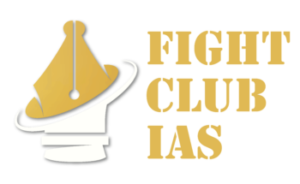Scientific method, and Critique
Table of Contents
According to Karl Pearson: “There is no short cut to truth, no way to gain knowledge, of the universe except through this gateway of scientific method.” Science goes with the method, not with the subject matter.
“Scientific Method is a systematic and objective attempt to study a problem for the purpose of deriving general principles”. The logical, rational, efficient and effective way of collecting, organizing and interpreting facts is scientific method. It consists of a series of steps, which researcher follow while carrying out research.
- The scientific method involves developing and testing theories about the world based on empirical evidence.
- If is defined by its commitment to systematic observation of the empirical world and strives to be objective, critical, skeptical and logical.
- The scientific method is an essential tool in research.
- A method of research in which a problem is identified, relevant data is gathers, hypothesis is formulated from the data and testable explanation is found for the hypothesis.
- Scientific method is characterized by systematic observation, measurement experimentation, formulation and testing of hypothesis and its modification.
Thinker's view
- Robert Burns describes it as “a systematic investigation to find solutions to a problem”. The investigation is guided by previously collected information.
- George A. Lundberg: “Social scientists are committed to the belief that the problems which confront them are to be solved, if at all by judicious and systematic observation, verification, classification, and interpretation of social phenomena. This is a approach in its most rigorous and successful from is broadly designated as the scientific method.”
- N. Thouless: “Scientific method is a system of techniques (different in many respects in different sciences, although retaining the same general character) for attaining the end of discovering general laws.”
Steps of the Scientific Method with Examples

- Selecting a Topic: Sociologists start by identifying a social phenomenon or issue they want to study. This could range from social inequality, crime, or education systems.
- Example: A sociologist may choose to study the impact of social media on mental health.
- Defining the Problem: After selecting a topic, the sociologist narrows it down to a specific issue or problem to be addressed.
- Example: The researcher defines the problem as examining whether excessive use of social media increases anxiety among teenagers.
- Reviewing the Literature: The sociologist reviews existing research and theories related to the chosen problem, identifying gaps that their study can fill.
- Example: The researcher looks at previous studies on social media usage and mental health, noting that while some studies focus on adults, research on teenagers is limited.
- Formulating the Hypothesis: A hypothesis is then developed, proposing a testable statement about the relationship between variables.
- Example: The hypothesis could be: “Increased time spent on social media is positively correlated with higher levels of anxiety in teenagers.”
- Choosing a Research Method or Methodology: The sociologist selects the most appropriate research method to test the hypothesis. Common methods include surveys, experiments, or observational studies.
- Example: The researcher might choose to conduct a survey of high school students, asking them about their social media use and self-reported anxiety levels.
- Collecting the Data: The data is gathered through the chosen method, ensuring it is empirical and verifiable.
- Example: The researcher distributes surveys to a representative sample of students from different schools, collecting quantitative data on their social media usage and anxiety.
- Analyzing the Results: The sociologist then analyzes the data, typically using statistical methods to determine whether the hypothesis is supported.
- Example: After analyzing the data, the researcher finds a significant correlation between the amount of time spent on social media and higher levels of anxiety among teenagers, supporting the hypothesis.
- Sharing the Results: Finally, the sociologist publishes their findings, contributing to the broader body of knowledge in sociology.
- Example: The results are published in an academic journal, adding to the growing research on the mental health impacts of social media and prompting further studies.
How the Scientific Method Systematizes Sociology
The use of the scientific method ensures that sociology is not just based on assumptions or opinions, but on carefully tested theories and empirical data. By following systematic steps, sociologists can create a structured body of knowledge that is reliable and applicable across various contexts.
- Example: Emile Durkheim’s study on suicide is a classic example. Durkheim used empirical data and statistical analysis to demonstrate how social integration and regulation influence suicide rates, showing that even deeply personal acts can have social causes. This systematic approach helped give sociology a scientific basis, shaping it as a structured field of inquiry.
The scientific method in sociology ensures that research is methodical, results are verifiable, and knowledge is systematized, making sociology a credible discipline with a definite shape.
Characteristics of Scientific Method
- Verifiable evidence:e., factual observation which other observers can see and check.
- Accuracy: It means truth or correctness of a statement or describing things exactly as they are and avoiding jumping to unwarranted conclusion either by exaggeration or fantasising.
- Systematic Observation: Strictly speaking the scientific method is systematic that is, it relies on care carefully planned studies rather than on random or haphazard observation. Nevertheless, Science can begin from some random observation.
- Objective Approach: The scientific method is objective. It relies on facts and on the world as it is, rather than on beliefs, wishes or desires. Scientists attempt (with varying degrees of success) to remove their biases when making observations.
- Precision:e., making it as exact as necessary, or giving exact number or measurement. Instead of saying “I interviewed a large number of people”, one says, “I interviewed 493 persons”. Instead of saying, most of the people were against family planning, one says, seventy two percent people were against family planning.” Thus, in scientific precision, one avoids colourful literature and vague meanings.
- Logical: Logic is defined as the discourse of argument. Analytically, logic is separable from any science, it constitutes a field of inquirey itself. However, science is not independent of the logic supporting it, at some point in his inquire, the researcher reaches a conclusion regarding the acceptability of some proposition.
- Training investigators: Imparting necessary knowledge to investigators to make them understand what to look for, how to interpret it and avoid inaccurate data collection.
- Predictive: Science is concerned with relating the present to the future. In fact, scientists strive to develop theories because, among other reasons, they are useful in predicting behaviour. A theory’s adequacy lies in its ability to predict a phenomenon or event successfully.
According to Martindale and Monachies
“Science too is a mode of thought, and like all thinking it arises in response to problems. It differs from the other modes of thought primarily in its method. Among the methods characteristic of the science are
- the emphasis it places upon the observation
- the attempt to test its ideas in practice
- the development of experiment, of model situations that may serve to test its ideas
- the invention of new instruments that permit more precise observation and more exact measurement
- the rigorous exclusion of the scientists’ evaluations from the study, and the concentration on the problem of how thing actually happen rather than on why they happen or what ought to happen”.
According to Henry Jhonson
Characteristics of Scientific Research
- It is empirical
- It is theoretical
- It is cumulative
- It is non – ethical
Important Uses of Scientific Research in Sociology
- Improves Decision-Making: Scientific research provides evidence-based insights that help individuals and organizations make informed decisions on social issues, policies, and interventions.
- Example: A government might use sociological research on poverty to implement targeted welfare programs for vulnerable populations.
- Reduces Uncertainty: By systematically collecting and analyzing data, sociological research reduces uncertainty, offering clearer understanding of complex social phenomena.
- Example: Research on crime rates in urban areas can help predict where crime is most likely to occur, enabling law enforcement to deploy resources effectively.
- Enables Adopting New Strategies: Research outcomes offer practical solutions, enabling organizations and governments to adopt new strategies that address emerging social challenges.
- Example: Studies on remote work trends during the COVID-19 pandemic have enabled companies to adopt more flexible work strategies.
- Helps in Planning for the Future: Sociological research identifies long-term trends, allowing policymakers and organizations to plan for future societal changes.
- Example: Demographic studies can predict aging populations, helping governments prepare for future healthcare and pension needs.
- Helps in Ascertaining Trends: Scientific research identifies social patterns and trends over time, enabling societies to better understand and address ongoing changes.
- Example: Research on family dynamics and marriage patterns can reveal shifts in societal values, helping policymakers adjust family-related laws.
Limitations of Scientific Research in Sociology
Social scientists tried to apply the techniques of the natural sciences for the study of human psyche and society. But it was soon found that social reality is very different, and it is not possible to apply the classical scientific method without modification for its study due to the following reasons
- Complexity of Social Data: No two persons are exactly alike and even the behaviour of the same individual varies under different circumstances. So, it is difficult to generalize about social phenomena in the form of universal cause-effect relationships.
- Social Phenomena is Unpredictable: Due to the complexity of social phenomena, it is difficult to predict human behavior and arrive at laws that are universally true under identical circumstances. This is in contrast to the high level of predictability that prevails in the case of physical and chemical phenomena.
- Plurality of Causes and Inter mixture of Effects: Not only do social phenomena have a range of causes but it is also difficult to clearly distinguish between cause and effect in the case of social data.
- Difficulty in Measurement and Quantification: Due to such diversity, it is difficult to quantify and consequently measure social categories.
Criticism of Scientific Method
Historian Jacques Barzun termed science “a faith as fanatical as any in history” and warned against the use of scientific thought to suppress considerations of meaning as integral to human existence.
Various dimensions along which the science and its methods have been criticized are as follows
- It is criticized for its claim to be an objective method.
- Karl Popper denied the very existence of evidence and of scientific method. Popper holds that there is only one universal method of acquiring knowledge, the negative method of trial and error. It covers not only all products of the human mind, including science, mathematics so on, but also the evolution of life.
- Thomas Kuhn felt that scientists work with preconceived notions and theories which subtly impact their observations and measurements.
- Science has been criticized for manipulating nature as well as individual.
- Science and technology is criticized for promoting consumerism and creating new problems for human being. It has threatened the very existence of humanity.
- Science and scientific methodology is a process of rationalization and according to Weber, process of rationalization is itself irrational.
- EconomistF. Schumacher considered that the 17th century scientific revolution shifted science from a focus on understanding nature, or wisdom, to a focus on manipulating nature and it leads to manipulate people, as well.
- J F Feyerbend contends that scientific method restricts the choices of the researcher and sociological research should be liberating not constraining.
- Adorno indicates that science is suffocating and kills creativity.
Previous Year Questions
- Describe the basic postulates of scientific method. How far are these followed in sociological research (2016
- Is Sociology a value- free science? Discuss (2020)
Important Keywords
Science, Systematic Knowledge, Objective Methods, Karl Pearson, Robert Burns, George A. Lundberg, Research Method or Methodology, Karl Popper, E.F. Schumacher, Decision-Making, Non – Ethical, Social Data and Systematic Observation.


